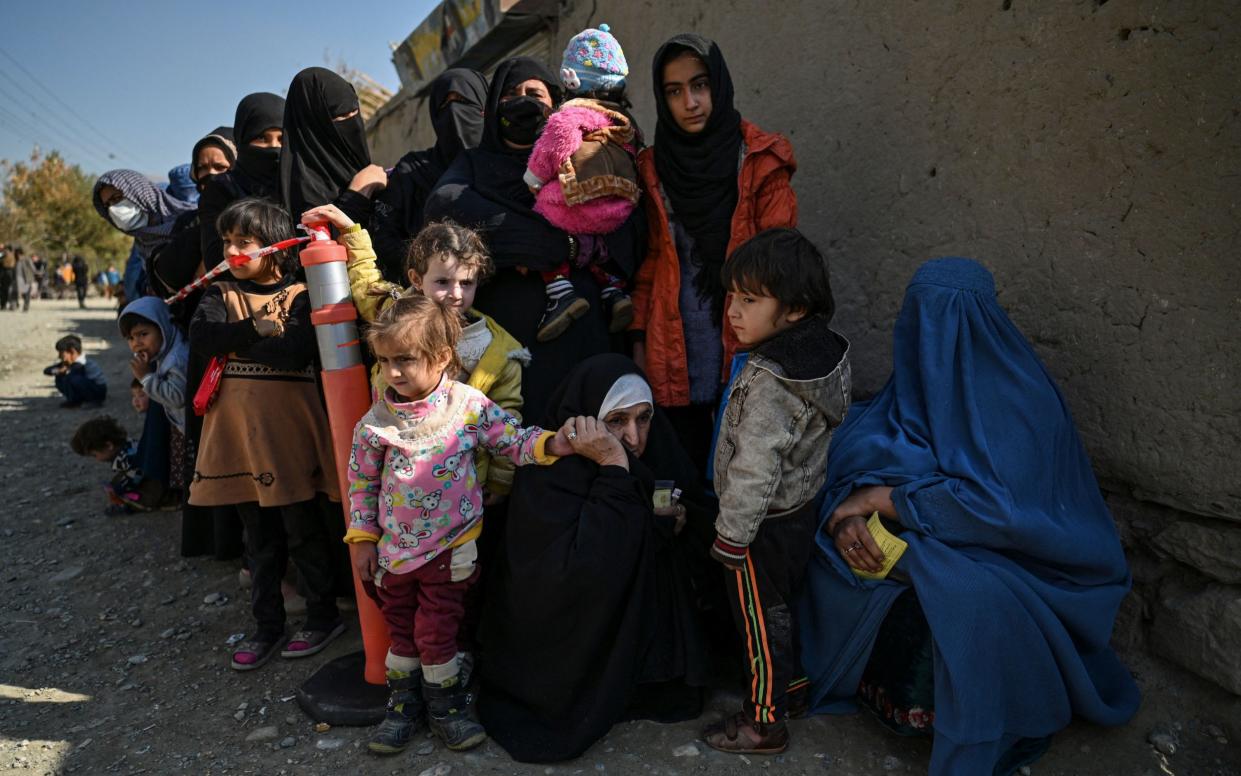Conflict, Covid and climate change fuelling record numbers of people in need of international aid

The number of people needing humanitarian assistance is set to hit record levels next year, with crises in Afghanistan, Ethiopia and Democratic Republic of Congo fuelling the surge.
In its annual Global Humanitarian Overview the United Nations projects that 274 million people worldwide will need food, shelter and protection next year – a large jump on 2020 figures when 235 million people were in need of assistance.
The report said the number of people needing humanitarian support is increasing at “an alarming rate”.
Next year one in 29 people around the world will need humanitarian assistance – compared to one in 95 in 2015 – a 250 per cent increase.
This crisis is “driven by a confluence of political instability, increased displacement levels, climate impacts and the effects of Covid-19. Crises have expanded their geographical range within already weakened states,” the report states.
The country with the largest number of people requiring help is the Democratic Republic of Congo with 27 million, followed by Ethiopia at 25.9 million and Afghanistan at 24.4 million.
The Middle East, North Africa and West and Central Africa continue to have the most need because of “protracted crises that show no signs of abating”.
Martin Griffiths, the UN’s head of relief, described the outlook as “bleak”.
He said new battlefields have emerged, including in northern Ethiopia where a brutal civil war has escalated in recent weeks.
Elsewhere in the country “conflict, drought and locusts are pushing more people to the brink,” he said.
And in Afghanistan, which has been tipped into near collapse since the Taliban takeover in August, needs are “skyrocketing”, said Mr Griffiths.
In Myanmar a military coup plunged the country into crisis earlier this year, leaving 14 million people in need of assistance. In Yemen some 16.2 million people are going hungry and in South Sudan economic shocks, three years of flooding, disease outbreaks and violence have pushed eight million people into crisis.
The UN says it needs $41 billion next year to help all those in need – this figure has doubled in just four years. But last year, when it needed around $37 billon it received less than half that amount.
“The cost of inaction hits humanitarian response hard,” the report warns. “In acute humanitarian settings, urgent life-saving and life-sustaining needs are prioritised over early recovery and resilience-building plans. This often leads to a vicious circle of dependence on humanitarian financing and little or no progress on ending persistent crises.”
Afghanistan needs the largest amount of help – $4.5 billion, followed by Ethiopia at $2.8 billion and DRC at $1.9 billon. Funding the world’s refugee crises will command a $10 billion price tag.
The report also warned how the number of climate-change related disasters was increasing, with a total of 389 recorded in 2020.
It said financing for climate adaptation is still woefully insufficient and does not prioritise the countries that are most vulnerable to the effects of the climate crisis.
The report also highlighted the impact of Covid on low income countries, with more than 97 million people pushed into poverty in 2020 alone.
However, despite the gloom Mr Griffiths said there had been some successes this year. In South Sudan famine was averted when half a million people were given food assistance and in Yemen the UN helped 344,000 women gave birth safely.
Mr Griffiths said: “The humanitarian system is strong, but the challenges are increasing.”
Ed Barnett, the head of the humanitarian response group at the UK Foreign, Commonwealth and Development Office, said the report “shows the reality of the overlapping set of drivers, including conflict and climate change, which is pushing more and more people into need”.
Last year Mark Lowcock, who was the UN’s relief chief, criticised the UK for cutting its aid budget at a time when Covid had hit low- and middle-income countries hard.
Mr Barnett said the UK continues to be one of the world’s top funders of humanitarian aid,
“What we’re looking to do through the spending review is protect our humanitarian funding to around £1 billion per annum,” he said.
This funding will be concentrated on countries most at risk of famine.

